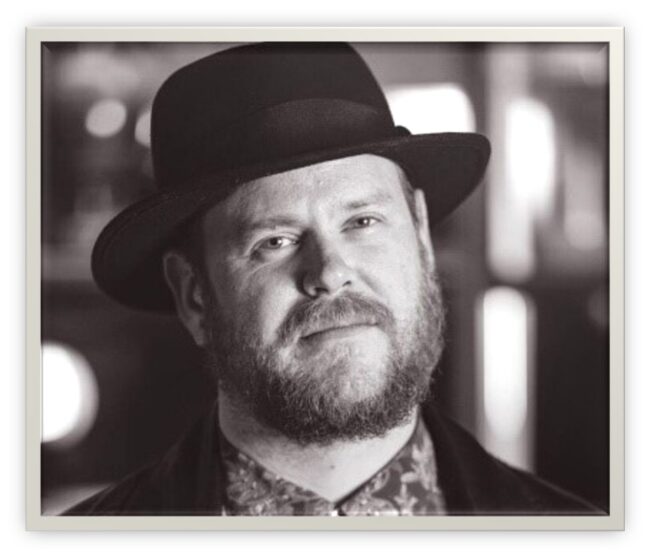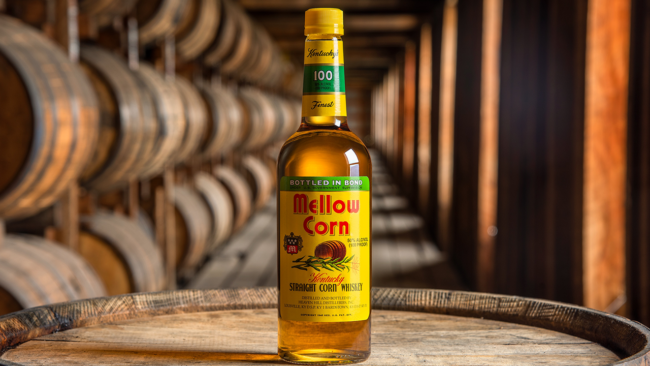Deep Dive: International Sales
How are International Sales different from Domestic Sales?
International business is very different from our domestic business at Heaven Hill, mostly because of the lack of a three-tier system overseas. The three-tier system of alcohol distribution, established in the U.S. after the repeal of Prohibition, includes importers or producers, distributors and retailers. Producers can sell their products only to wholesale distributors, who then sell to retailers, and only retailers can sell to consumers.
In overseas markets, a supplier has the freedom to go to market and sell to whomever they want, with a few exceptions. For example, our International Sales team can sell directly to national accounts or even to Amazon.
“That aside, international is less homogenous than the states, when it comes to regulations and bureaucracy,” said Justin. “We may have to produce special labels and packages, meet certain criteria and provide documentation that will vary country to country, and we jump through all sorts of hoops to make it work.”
Heaven Hill has been selling in the U.S. much longer than it has been exporting, and the businesses and brands are in different life cycles. About 15 years ago, Heaven Hill brought what was then a small U.S. sales force in house under Chief Sales Officer Steve Feller. Today, our significant U.S. sales force continues to drive sales and growth.
The International Sales team has just begun this same process with the hiring of its own sales force in the last three years. “More resources and a bigger sales team wins the well-deserved attention of a distributor, which drives distribution and growth,” said Justin.
Finally, another key difference is the perception of American Whiskey in International markets. “American Whiskey is widely understood by the domestic consumer, whereas Internationally there is generally less knowledge and awareness of the category. In most markets, whiskey is predominantly thought of as Scotch with Scotch Whisky being the world’s number one internationally traded spirit.
There’s considerably more awareness of American Whiskey amongst the trade, however from a consumer perspective, there’s still a big job to do.”
The International Sales Team
Heaven Hill’s growing International team now includes four Area Directors, an International Sales and Marketing Manager, an Area Marketing Manager, two Brokers, two Export Specialists and a brand educator. There are plans to add two Area Managers for Western and Eastern Europe, and both a Market Manager and Embedded Brand Manager for Latin America in the future.
“As we fill these roles and countries begin to re-open from COVID lockdowns, we’ll be prepared with a fiery re-start to the business,” said Justin.
The team’s four Area Directors are Marc Duffy for W. Europe, David Polick for E. Europe, Jorge Rodriguez for Latin America and Jakub Wierzba for Asia. Chasity Riley serves as International Sales and Marketing Manager, with Export Specialists Adela Fuster and Ashley Dunn reporting to her. Benji Purslow is the National Brand Educator with Jemma Degville-Hayes recently joining as the Area Marketing Manager.
Early Overseas Presence
The development of our International Sales team builds on a strong foundation Heaven Hill has built domestically over its 85-year history, said Justin.
“Many outside the U.S. think of Heaven Hill as a niche craft distiller, and everyone knows Max Shapira – the international team has never been able to figure that one out,” he said. “Max must have travelled the world to meet all these people.”
While Max is well known overseas, our brands are not yet well known to consumers, creating an opportunity for the International Sales team to build brand awareness.
“So a brand like Evan Williams, which has a following since the 1950s with substantial volume moving through the off-premise in the U.S. is only scratching the surface internationally,” said Justin. “We must build a brand outside of the U.S. and in most markets, through the on-premise with a fragmented route to market structure .”
For the team, this takes a considerable amount of hand selling, education and time. Well-established brands in the U.S. are much further along in their life cycle, have broad awareness and a loyal consumer base. Internationally these same brands are in the beginning of their life cycles.
“That’s why 95% of Heaven Hill’s business is domestic based and very little of the U.S.-focused marketing efforts translate to the international market,” Justin said. “We are in the early life of a brand and have a newer consumer from a range of cultures.”
Brand Distribution
The International Sales team achieved full distribution of core growth Heaven Hill brands, like Evan Williams and Elijah Craig in almost every major country for the first time as of last year. International brand prioritization looks different from domestic groupings, with a primary focus on American Whiskeys, Lunazul, Black Velvet and Carolans. The team also has international distribution of Hpnotiq, PAMA, Domaine de Canton, Deep Eddy Vodka, Aristocrat and Conquistador.
“Each country is different, and many sell more of one brand than another,” said Justin. “For example, Mexico is a big consumer of Hpnotiq but not of whiskeys, while Black Velvet is a big seller in Belarus. Chile is just learning about American Whiskey and Evan Williams, while the UK has several brands available in the market.”
The team is aiming for a million case number in the next three to five years, as our sales team continues to grow. As a pillar of our corporate strategy, Heaven Hill is focused on laying a strong foundation and distribution networks that will enable us to lead growth primarily in our Whiskey portfolio.
So far, the team has attracted over 100 customers, over 500,000 9 Liter cases, outside warehouses and growing infrastructure. All sales are at a premium price point to that of the U.S., and brand contribution is positive and increasing year-over-year due to a laser-like focus on a smaller portfolio of brands.
International Trends
One of the biggest trends taking place overseas is the exploration of American Whiskey, and Heaven Hill is fortunate to offer every type and style of American Whiskey. Justin said the team, using Heaven Hill’s whiskies, offers every consumer an “aha” experience, where they can unveil the different flavors of grains, barrel aging and barrel selection, tied together with U.S. history.
“We do this with unaged corn whiskey (Georgia Moon), aged corn whiskey (Mellow Corn), wheat and rye whiskey (Bernheim and Rittenhouse), rye Bourbon (Evan Williams), wheated Bourbon (Larceny) and, of course, Bottled in Bond, single barrels, small batches and barrel proof offerings,” Justin said. “The international trade and consumers latch onto this. They are embracing the Heaven Hill styles as they personalize the experience.”
The Opportunity
The international marketplace holds tremendous opportunity for Heaven Hill, in terms of volume and profit. Our overseas presence also augments our brand value and equity (international brands have higher value). It also allows further diversification, so we can anticipate the changing marketplace, maximize our brand life cycles and resiliency and position the company for long-term growth and establish Heaven Hill as a multinational company.
COVID Impacts
“The COVID situation in the U.S., even in the states with the strictest lock-down mandates, pales in comparison to what has happened internationally,” said Justin. “We continue to have freedom that does not exist in many other countries.”
For example, Justin said, South Africa’s lockdown limited purchases of alcohol and exporting of wine – one of their main export products, and Ireland’s hospitality sector was largely shut down from March 2020 to June this year.
Justin said there is pent-up energy and desire to escape lockdown in so many countries that it will be like a “dam bursting” when countries open and people can interact and socialize again.
During the pandemic, International Sales saw a shift to an off-premise that also suffered. Portugal, our largest market for Carolans, is off 130% on brand contribution due to near-zero depletions (units sold). Justin also said global travel retail was decimated during the first year of COVID — a market that previously represented over a million dollars in net revenue for Heaven Hill.
“Our volume is flat year-to-date, and our brand contribution is up 18%,” Justin said. “That, in comparison to Kentucky exports, which are down 20% according to the Kentucky Distillers Association, makes our performance look even better.”
Much of this is driven by direct-to-consumer sales and brands like Black Velvet, said Justin, for which the team was able to win distribution and new sales. Our outside warehouses in Miami and the Netherlands were able to supply customers in a matter of days versus our traditional lead times in the U.S., allowing the team to react to surges in Amazon sales and handle supply issues.
Looking toward the future, Justin said it’s important for Heaven Hill to know, understand and embrace the world outside of the U.S., which is replete with consumers of all ages, from all cultures, and we think they will be eager to explore American Whiskies and Heaven Hill’s offerings.
“We must think like entrepreneurs and be willing to act like entrepreneurs,” he said. “We need to be nimble, act like a start up and be prepared to capitalize on opportunities, while planning for long-term success.”
Consumers create brands today, embracing them and personalizing them as they see fit, he said. “We can only send messages and communication points in hopes that it will guide their decision making. This requires us to stretch and escape the innate desire for control and thinking that what works in the U.S. will work everywhere else,” Justin said. “If we do, we will grow.”








